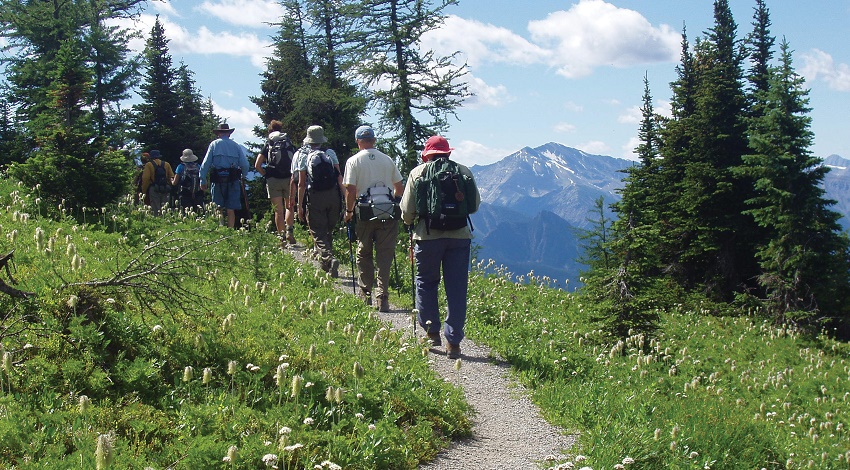Simple Ways to Travel Sustainably: 10 Tips for Eco-Friendly Adventures
At Road Scholar, we're committed to decreasing our environmental impact and increasing our positive contributions to the communities we visit. Here are some easy ways you can prepare for your upcoming program and travel more responsibly and sustainably:

1. Bring your own water bottle and coffee mug.
Investing in items like reusable water bottles, sturdy luggage, cloth tote bags and Help us reduce our reliance on plastic bottles by carrying your own reusable options. You can even purchase a Road Scholar water bottle in our campus store!
2. Pack your own toiletries.
Bringing refillable containers for shampoo, conditioner and other personal items helps cut down on single-use plastics and reduces waste. If you’re packing light, remember that carry-on liquids must be in containers of 3.4 ounces or less, and all fluids, gels, and aerosols need to fit in a quart-sized bag.

3. Fly direct when possible.
The most fuel is burned during takeoff and landing, so limiting your flights helps lower your carbon footprint.
4. Travel Intentionally.
Opt for local public transportation, rent a bike, or enjoy a leisurely walk between activities. It’s a great way to explore and reduce your environmental impact.

5. Skip the housekeeping.
Hanging up your towels and reusing your bed linens conserves water and other resources. If you’re staying multiple nights, decide how often you really need housekeeping.
6. Respect local environments and wildlife.
Follow posted guidelines to protect both the environment and wildlife. Stick to “Leave No Trace” principles when you’re out in nature and remember: admire wildlife from a distance — don’t touch or feed them.

7. Embrace the 4 Rs: Refuse, Reduce, Reuse, Recycle.
a. Refuse to buy items wrapped in single-use plastics.
b. Reduce your use of water, energy, and other resources.
c. Reuse items like coffee cups (or bring your own!).
d. Recycle where possible, and choose materials like aluminum over plastic.
8. Eat Locally.
Support local restaurants, especially those that source their ingredients locally. While you’re at it, try vegetarian or vegan meals to help reduce the environmental impact of meat production.

9. Shop locally.
Spending money at locally owned businesses keeps more of it in the community. A little research can go a long way in finding these gems.
10. Share good news.
Spread the word about businesses and individuals making a positive impact in the places you visit. Word of mouth helps support local businesses and encourages authentic, sustainable experiences.
Whether you’re on a Road Scholar program or traveling independently, these small steps can make a big difference.
Your voice matters! Let us know what’s important to you when it comes to sustainability. Feel free to share your thoughts with us at Sustainability@roadscholar.org.
